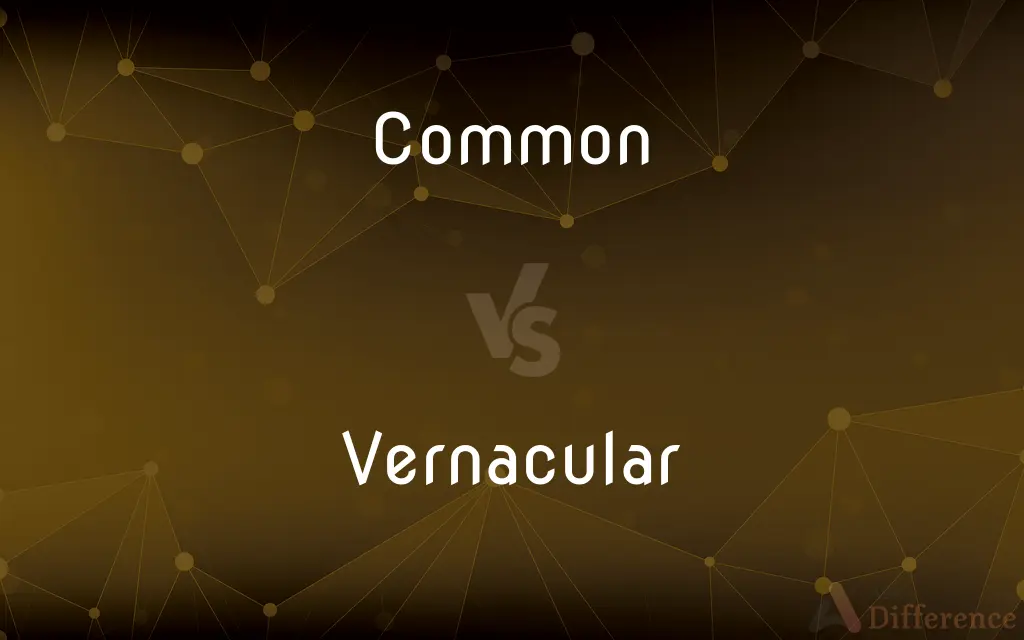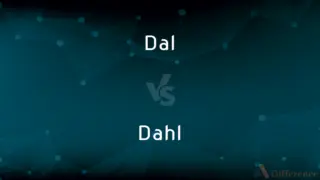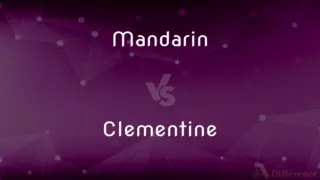Common vs. Vernacular — What's the Difference?

Difference Between Common and Vernacular
ADVERTISEMENT
Compare with Definitions
Common
Belonging equally to or shared equally by two or more; joint
Common interests.
Vernacular
A vernacular or vernacular language refers to the language or dialect that is spoken by people that are inhabiting a particular country or region. The vernacular is typically the native language, normally spoken informally rather than written, and seen as of lower status than more codified forms.
Common
Of or relating to the community as a whole; public
For the common good.
Vernacular
The language or dialect spoken by the ordinary people in a particular country or region
He wrote in the vernacular to reach a larger audience
Common
Widespread; prevalent
Gas stations became common as the use of cars grew.
ADVERTISEMENT
Vernacular
Architecture concerned with domestic and functional rather than public or monumental buildings
Buildings in which Gothic merged into farmhouse vernacular
Common
Occurring frequently or habitually; usual
It is common for movies to last 90 minutes or more.
Vernacular
(of language) spoken as one's mother tongue; not learned or imposed as a second language.
Common
Most widely known; ordinary
The common housefly.
Vernacular
(of architecture) concerned with domestic and functional rather than public or monumental buildings
Vernacular buildings
Common
Having no special designation, status, or rank
A common sailor.
Vernacular
The everyday language spoken by a people as distinguished from the literary language.
Common
Not distinguished by superior or noteworthy characteristics; average
The common spectator.
Vernacular
A variety of such everyday language specific to a social group or region
The vernaculars of New York City.
Common
Of no special quality; standard
Common procedure.
Vernacular
The specialized vocabulary of a particular trade, profession, or group
In the legal vernacular.
Common
Of mediocre or inferior quality; second-rate
Common cloth.
Vernacular
The common, nonscientific name of a plant or animal.
Common
Unrefined or coarse in manner; vulgar
Behavior that branded him as common.
Vernacular
Native to or commonly spoken by the members of a particular country or region.
Common
Either masculine or feminine in gender.
Vernacular
Using the native language of a region, especially as distinct from the literary language
A vernacular poet.
Common
Representing one or all of the members of a class; not designating a unique entity.
Vernacular
Relating to or expressed in the native language or dialect.
Common
Commons The common people; commonalty.
Vernacular
Of or being an indigenous building style using local materials and traditional methods of construction and ornament, especially as distinguished from academic or historical architectural styles.
Common
The social class composed of commoners.
Vernacular
Occurring or existing in a particular locality; endemic
A vernacular disease.
Common
The parliamentary representatives of this class.
Vernacular
Relating to or designating the common, nonscientific name of a biological species.
Common
Commons The House of Commons.
Vernacular
The language of a people or a national language.
A vernacular of the United States is English.
Common
A tract of land, usually in a centrally located spot, belonging to or used by a community as a whole
A band concert on the village common.
Vernacular
Everyday speech or dialect, including colloquialisms, as opposed to standard, literary, liturgical, or scientific idiom.
Street vernacular can be quite different from what is heard elsewhere.
Common
The legal right of a person to use the lands or waters of another, as for fishing.
Vernacular
Language unique to a particular group of people.
For those of a certain age, hiphop vernacular might just as well be a foreign language.
Common
Commons(used with a sing. verb) A building or hall for dining, typically at a university or college.
Vernacular
A language lacking standardization or a written form.
Common
Common stock.
Vernacular
Indigenous spoken language, as distinct from a literary or liturgical language such as Ecclesiastical Latin.
Vatican II allowed the celebration of the mass in the vernacular.
Common
(Ecclesiastical) A service used for a particular class of festivals.
Vernacular
(architecture) A style of architecture involving local building materials and styles, not imported.
Common
Mutual; shared by more than one.
The two competitors have the common aim of winning the championship.
Winning the championship is an aim common to the two competitors.
Vernacular
Of or pertaining to everyday language, as opposed to standard, literary, liturgical, or scientific idiom.
Common
Occurring or happening regularly or frequently; usual.
It is common to find sharks off this coast.
Vernacular
Belonging to the country of one's birth; one's own by birth or nature.
A vernacular disease
Common
Found in large numbers or in a large quantity; usual.
Commoner used to be commoner, but more common is now more common.
Sharks are common in these waters.
It differs from the common blackbird in the size of its beak.
Vernacular
(architecture) Of or related to local building materials and styles; not imported.
Common
Simple, ordinary or vulgar.
Vernacular
(art) Connected to a collective memory; not imported.
Common
(grammar) Of, pertaining or belonging to the common gender.
Vernacular
Belonging to the country of one's birth; one's own by birth or nature; native; indigenous; - now used chiefly of language; as, English is our vernacular language.
His skill in the vernacular dialect of the Celtic tongue.
Which in our vernacular idiom may be thus interpreted.
Common
(grammar) Of or pertaining to common nouns as opposed to proper nouns.
Vernacular
The vernacular language; one's mother tongue; often, the common forms of expression in a particular locality, opposed to literary or learned forms.
Common
Vernacular, referring to the name of a kind of plant or animal, i.e., common name vs. scientific name.
Vernacular
A characteristic language of a particular group (as among thieves);
They don't speak our lingo
Common
(obsolete) Profane; polluted.
Vernacular
The everyday speech of the people (as distinguished from literary language)
Common
(obsolete) Given to lewd habits; prostitute.
Vernacular
Being or characteristic of or appropriate to everyday language;
Common parlance
A vernacular term
Vernacular speakers
The vulgar tongue of the masses
The technical and vulgar names for an animal species
Common
Mutual good, shared by more than one.
Common
A tract of land in common ownership; common land.
Common
The people; the community.
Common
(legal) The right of taking a profit in the land of another, in common either with the owner or with other persons; so called from the community of interest which arises between the claimant of the right and the owner of the soil, or between the claimants and other commoners entitled to the same right.
Common
(obsolete) To communicate (something).
Common
(obsolete) To converse, talk.
Common
(obsolete) To have sex.
Common
(obsolete) To participate.
Common
(obsolete) To have a joint right with others in common ground.
Common
(obsolete) To board together; to eat at a table in common.
Common
Belonging or relating equally, or similarly, to more than one; as, you and I have a common interest in the property.
Though life and sense be common to men and brutes.
Common
Belonging to or shared by, affecting or serving, all the members of a class, considered together; general; public; as, properties common to all plants; the common schools; the Book of Common Prayer.
Such actions as the common good requireth.
The common enemy of man.
Common
Often met with; usual; frequent; customary.
Grief more than common grief.
Common
Not distinguished or exceptional; inconspicuous; ordinary; plebeian; - often in a depreciatory sense.
The honest, heart-felt enjoyment of common life.
This fact was infamousAnd ill beseeming any common man,Much more a knight, a captain and a leader.
Above the vulgar flight of common souls.
Common
Profane; polluted.
What God hath cleansed, that call not thou common.
Common
Given to habits of lewdness; prostitute.
A dame who herself was common.
Common
The people; the community.
Common
An inclosed or uninclosed tract of ground for pleasure, for pasturage, etc., the use of which belongs to the public; or to a number of persons.
Common
The right of taking a profit in the land of another, in common either with the owner or with other persons; - so called from the community of interest which arises between the claimant of the right and the owner of the soil, or between the claimants and other commoners entitled to the same right.
Common
To converse together; to discourse; to confer.
Embassadors were sent upon both parts, and divers means of entreaty were commoned of.
Common
To participate.
Common
To have a joint right with others in common ground.
Common
To board together; to eat at a table in common.
Common
A piece of open land for recreational use in an urban area;
They went for a walk in the park
Common
Belonging to or participated in by a community as a whole; public;
For the common good
Common lands are set aside for use by all members of a community
Common
Of no special distinction or quality; widely known or commonly encountered; average or ordinary or usual;
The common man
A common sailor
The common cold
A common nuisance
Followed common procedure
It is common knowledge that she lives alone
The common housefly
A common brand of soap
Common
Common to or shared by two or more parties;
A common friend
The mutual interests of management and labor
Common
Commonly encountered;
A common (or familiar) complaint
The usual greeting
Common
Being or characteristic of or appropriate to everyday language;
Common parlance
A vernacular term
Vernacular speakers
The vulgar tongue of the masses
The technical and vulgar names for an animal species
Common
Of or associated with the great masses of people;
The common people in those days suffered greatly
Behavior that branded him as common
His square plebeian nose
A vulgar and objectionable person
The unwashed masses
Common
Of low or inferior quality or value;
Of what coarse metal ye are molded
Produced...the common cloths used by the poorer population
Common
Lacking refinement or cultivation or taste;
He had coarse manners but a first-rate mind
Behavior that branded him as common
An untutored and uncouth human being
An uncouth soldier--a real tough guy
Appealing to the vulgar taste for violence
The vulgar display of the newly rich
Common
To be expected; standard;
Common decency
Share Your Discovery

Previous Comparison
Dal vs. Dahl
Next Comparison
Mandarin vs. Clementine













































